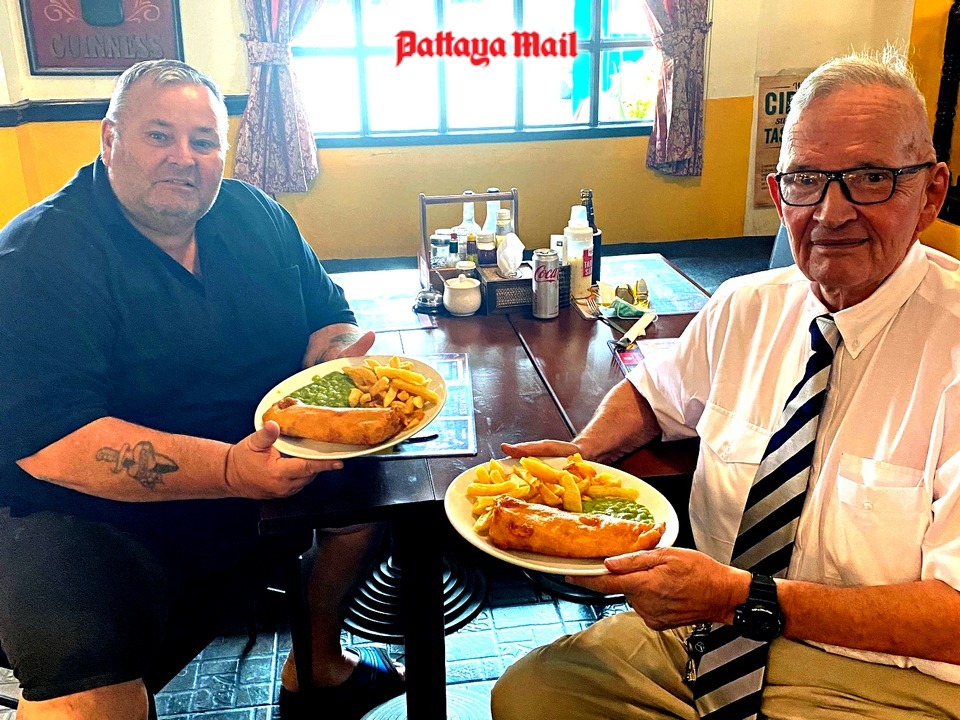
The very survival of fish and chips in UK is threatened even as the dish continues to dominate the foreign food headlines in Thailand. According to the internet site Chippy Chat, many of the UK’s 10,000 or so chippies are even contemplating closure as the portion price zooms past 10 GPB (430 baht) thanks to the war in the Ukraine, shortage of fresh fish from the Russian Arctic and domestic inflationary pressures for wages, gas and electricity. “Fish and chips in Britain have traditionally been cheap as well as popular, but with costs rising weekly, we will be hitting 15 GPB per portion by the end of the year,” according to the owner of Haddock Paddock near Manchester. Who is going to pay that he wonders?
By contrast, fish and chips have never been so popular in Thailand. There are now said to be over a thousand outlets in Bangkok and over two hundred in Pattaya. “It’s true that most fish and chips are sold in Thai restaurants offering a wide menu rather than a specialist one, but the expansion has been gigantic,” said Colin Mason who has recently written a short international history of the food. The average price of fish and chips in a Thai eatery is around 270 baht (just over 6GBP). However, the price varies according to the fish used. Imported cod and haddock are much more expensive than local catfish or even imported estuary perch from China which sometimes masquerades as Icelandic or Norwegian cod.
Many Thai restaurants are keen to imitate British history as far as possible. One outlet in Bangkok’s Khao San Road is even a member of the British Federation of Fish Fryers, the UK regulatory body. Another trend is to offer genuine Sarson’s vinegar and to add mushy peas and battered pork sausages to the menu in the English style. In Pattaya, Sharples’ traditional fish and chip shop is about to open another branch and is offering franchises nationwide. Curry sauce as a replacement for vinegar has yet to figure prominently in Thai-version fish and chips.
Although the number of British tourists and expats to Thailand has fallen by around a half since the 1990s, the desire to find something familiar and tasty to eat in a foreign land remains strong and irresistible. Moreover, several Facebook food groups aimed at Brits are in serious daily competition to find where to find the best fish and chips in Thailand. That’s a marketing tool in its own right. As Colin Mason puts it, “American burgers, German Sauerbraten and Italian pizzas have their place, but nothing can replace for Brits the dish that won world war two.” Almost singlehanded.






